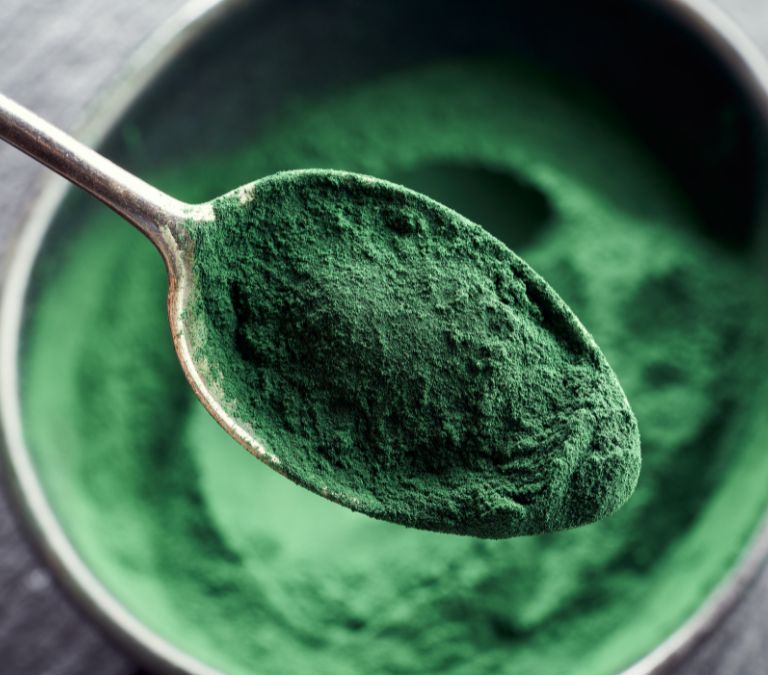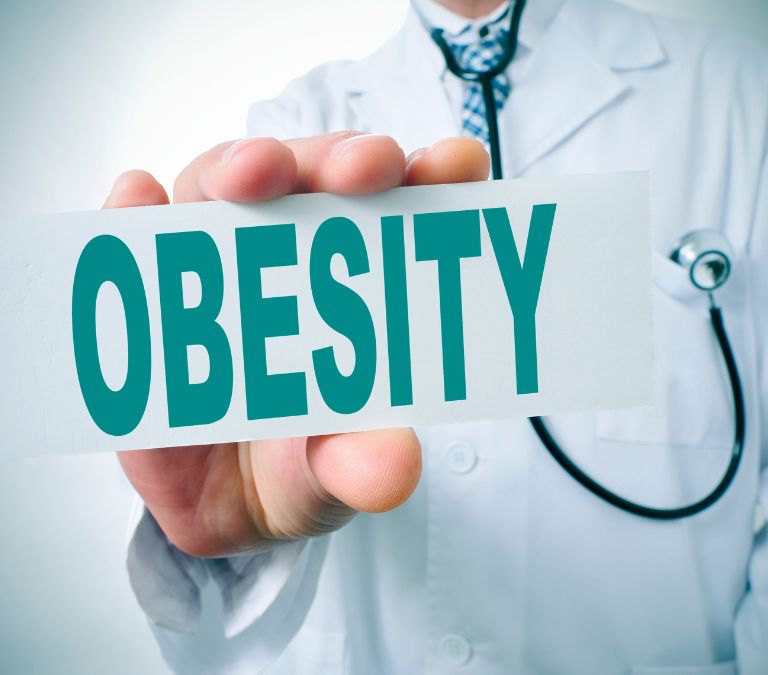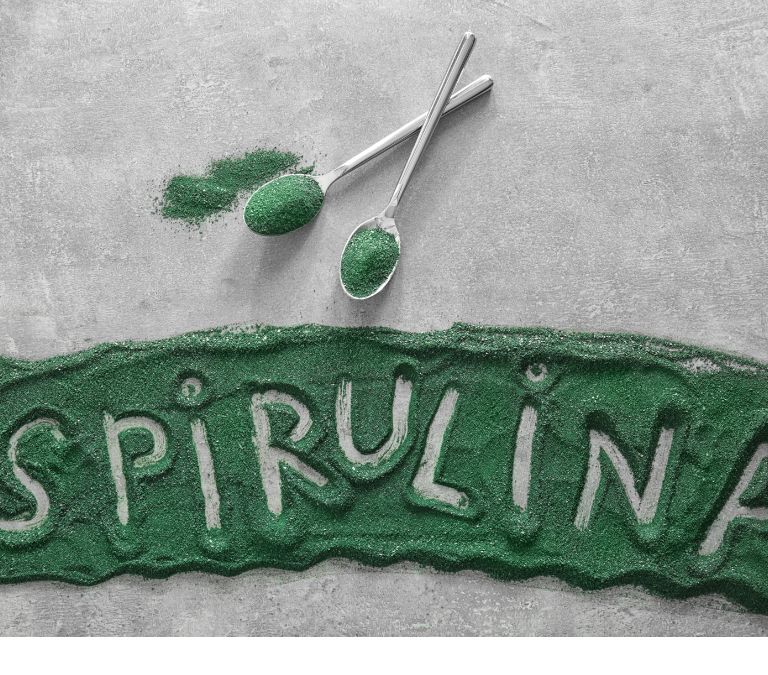Spirulina, often regarded as a “superfood,” is a nutrient-rich dietary supplement capable of benefiting the body and brain. It is known as the most popular supplement globally. Spirulina is a type of cyanobacteria under the single-celled family of microbes known as blue-green algae. As a result of the wide range of nutrients, spirulina is of immense health benefits.
This food supplement contains high vitamin and protein content and as you probably already know, protein is very good for menopause. Spirulina is an excellent supplement choice for vegans. Also, spirulina possesses some antioxidant and immune system regulatory properties.
During menopause, our bodies go through a lot of changes. The period of menopause isn’t just the time of our lives when our ovaries become incapable of releasing eggs. The period of menopause comes with some changes or symptoms that could vary in their degree of severity.
During menopause, the body becomes more susceptible to various illnesses and diseases. Besides the characteristic hot flashes and night sweats, menopausal women are prone to other severe symptoms like heart diseases, osteoporosis, Polycystic ovary syndrome, and depression.
Menopause is not an illness. Instead, it is a natural transition that every woman must go through. With this, some measures have been adopted to help manage the symptoms. One can manage these symptoms effectively from medication to lifestyle and diet changes. Of these measures, diet changes have been known to help cushion the effects of menopause. It is where spirulina comes into the picture.
During menopause, the production power of various hormones in the body begins to either decline or progress rapidly. This fluctuation in hormone production and secretion could, in turn, lead to some other complications in the body. This imbalance can lead to problems associated with the ovaries.
Hormones are constantly produced by our body to make specific mechanisms work. Hormones also regulate the monthly menstrual cycle we experience every month. From decreased levels of testosterone, progesterone, and androgens to rapid irregularities in the amount of insulin in the body, menopausal women are at the receiving end of all these. With this, one begins to wonder how spirulina can help women achieve effective management of menopause.
While spirulina has not been entirely proven to be a remedy for a vast array of illnesses, one cannot ignore its health benefits simply because some groups of elites say so.
My Personal Experience with Spirulina

Some years ago, I experienced the peak of my menopausal symptoms, leading to a series of tests and medications. I experienced very severe hot flashes and worrying cases of heart-related problems. With this, I was determined to find the best possible solutions to this constant pain. After speaking to many doctors and other medical practitioners, I was advised to settle for diet changes to manage these symptoms. During this period, I was drawn to supplements. I embraced spirulina.
Before my menopausal symptoms outburst, I had never taken spirulina. I had no idea what this super supplement was. When I learned about it, I included some bits of spirulina in my diet. With this, I had stable blood pressure for a very long time. While I won’t give all the compliments to this supplement, it had a massive effect in helping me with my blood pressure problems since getting into menopause.
Benefits of Spirulina
Spirulina has many health benefits. Here are some benefits of spirulina.
Reduction in Blood Pressure
So many serious illnesses today are triggered by high blood pressure. Problems with high blood pressure cannot be ignored, as some of today’s most feared diseases like stroke, heart attacks, and kidney diseases are driven by it. Spirulina, about 4.5 grams of it every day, has been observed to help reduce blood pressure. This reduction in blood pressure by spirulina is caused by the increased production of nitric oxide, which helps relax and dilate the blood vessels.
Very High in Important Nutrients
Spirulina grows in both marine and freshwater. This cyanobacterium comprises surprisingly helpful nutrients that many diets today lack. One teaspoon of dried spirulina contains up to 11% of recommended daily allowance of iron, 4% recommended daily allowance of vitamin B3, 11% recommended daily allowance of vitamin B1, 15% recommended daily allowance of vitamin B2, and up to 21% recommended daily allowance of copper.
A teaspoon of dried spirulina also contains decent amounts of manganese, magnesium, and potassium. All of these nutrients are needed by the body in varying quantities. Spirulina is the most nutritious food on earth compared to other foods. Surprisingly, spirulina holds a minimal amount of calories and an even smaller fat.
Possession of Cancer Resistive Properties
Research has shown that spirulina possesses anti-cancer properties. In animals, spirulina may help reduce tumor size and cancer occurrence. Spirulina was administered to patients suffering from oral submucous fibrosis in another study. For those given one gram of spirulina every day for an entire year, up to 45% saw their lesions disappear. There was a sharp contrast to the 7% who took other medication. Of the 45% with no lesions, they saw their lesions reappear when they stopped taking their daily spirulina dosage.
Might Improve Muscle Strength
Some studies on spirulina have shown that they can help improve the strength and endurance of muscles. Spirulina, when taken, is known to increase the time it takes for people to get tired. With this, spirulina is used to provide benefits derived from exercises.
Prevents Low-Density Lipoprotein from Oxidation
Lipid peroxidation is when the body damages its fatty structures through oxidation. It can trigger so many serious illnesses like heart disease. Spirulina can help prevent peroxidation because it contains antioxidants that are very specific in reducing lipid peroxidation in humans.
Capable of Lowering Levels of Triglyceride and Low-Density Lipoprotein

LDL, also known as bad cholesterol, can cause heart diseases. Spirulina can help reduce the amounts of LDL and triglyceride in the body and, at the same time, increase the amount of good cholesterol.
Good Antioxidant
While oxidants can damage the body’s cells, including DNA, spirulina can serve as an antioxidant source to protect the body from the harmful effects of oxidants. The antioxidant substance of spirulina is phycocyanin. The phycocyanin gives the characteristic blue-green color to the spirulina. Phycocyanin can also perform anti-inflammatory functions by inhibiting the growth or production of inflammatory signaling molecules.
May Help in Regulating Blood Sugar
In research conducted, spirulina was observed to outperform some popular drugs for the treatment of diabetes. While scientists primarily performed this research on animals, it may be effective enough to regulate human blood sugar.
Effects of Plants in The Management of Menopausal Symptoms
Spirulina is a bacteria and not a plant. However, they tend to act as plants; they contain chlorophyll and are entirely autotrophic in their mode of nutrition. It means they are photosynthetic. Just like seaweed, spirulina grows in freshwater environments.
However, some spirulina increase in fresh and alkaline water bodies. Vegetables are of immense nutritional benefits. They are packed with various antioxidants, vitamins, minerals, and fiber. With this, vegetables are often recommended by nutritionists, dietitians, and doctors for healthy living. Up to 50% of your diet should include vegetables.
For women like us going through menopause, vegetables play a crucial role in helping to subtle the effects of these symptoms. According to research, menopausal women who consume a lot of veggies will experience a 19% drop in symptoms like hot flashes and night sweats compared to women who aren’t fans of veggies.
Postmenopausal women are prone to osteoporosis, a disease characterized by weak and unhealthy bones. With vegetables, women at the postmenopausal stage of their lives can utilize the chemicals from veggies to balance the estrogen levels in their systems. With this, they get protection from problems related to weak bones.
With this, menopausal women ought not to live life the same way they did before menopause. While vegetables aren’t the first diet choice of many women today, opting for them will save you from damning complications not just to cushion the effects of menopause but to live a healthier life.
Effects of Spirulina on Menopause
During the period of menopause, women become more prone to metabolic syndrome. Menopausal women, especially those at the postmenopausal stage of menopause, are very likely to be diagnosed with decreased high-density lipoprotein, increased blood pressure, obesity, hypertension, and hyperglycemia.
All of these illnesses could lead to an increased risk of cardiovascular diseases. For this, preventing these symptoms is critical in the life of postmenopausal women. Since spirulina is a super supplement capable of managing and regulating the body’s general metabolism, clinical trials involving spirulina as a way of managing the symptoms of menopause are under full scale.
While the reason for most of the symptoms associated with menopause is still not apparent yet, some research has attributed them to some genetic and environmental factors. In the case of obesity, a rapid decline in estrogen level is believed to be the primary triggering factor. The decrease in estrogen production and secretion in the body is linked to abnormalities in the body’s metabolism. These abnormalities could result in type 2 diabetes and other cardiovascular system diseases.
During menopause, there is a progressive increase in triglycerides, total cholesterol, and low-density lipoprotein cholesterol, and a gradual but eventual decline in the level of high-density lipoprotein cholesterol. It could lead to problems of hypertension, abdominal insulin, fat resistance, rising blood pressure, and atherosclerosis. Spirulina is recommended as an excellent supplement to take in the management of menopause.
Menopausal symptoms and their reactions to spirulina
Below are some symptoms associated with menopause and how spirulina could help manage them.
Obesity

According to research, the consumption of spirulina can help manage problems of obesity in menopausal women. Spirulina possesses negligible calorie and fat content. It also helps in the modulation of appetite and the absorption of food. Spirulina could help reduce oxidative stress and the infiltration of macrophages into the visceral adipose tissue. Also, spirulina is rich in essential amino acids like alanine and phenylalanine. These amino acids are producers of cholecystokinin, which helps inhibit the appetite center. With this, it can help in suppressing body weight.
High Blood Pressure
The phycocyanin content of spirulina can decrease blood pressure. In some research conducted, daily administration of spirulina could improve blood pressure. While type 2 diabetes could make a menopausal woman even more at risk of high blood pressure, adding spirulina to the diet as a supplement could lead to an apparent decrease in blood pressure.
Scientists carried out research on overweight and hypertensive patients and their reactions to spirulina administration. After three consecutive months of administering this supplement, the patients showed an apparent reduction in blood pressure. These researches have proven that routine consumption of spirulina could help reduce blood pressure, even in overweight women.
Hot Flashes
While there is still no evidence to support the claim of spirulina’s cushioning effects on hot flashes, some reports have claimed that the detoxifying properties of this supplement could help alleviate hot flashes. Also, obesity is a significant cause of hot flashes in menopausal women. It means that the effects of spirulina on obese patients could help alleviate problems of hot flashes.
Insulin resistance
Insulin resistance refers to the resistance of the body to insulin. A defect in insulin secretion and action is prevalent in many menopausal women. This defect in insulin function is the leading cause of histological and metabolic abnormalities in our bodies. Spirulina can help with the problem of insulin resistance by improving the sensitivity of the body to insulin.
While one cannot cure insulin resistance, spirulina can help effectively manage this disease. Women experiencing some levels of resistance to the insulin hormone are at an increased risk of diabetes, breast cancer, and problems with the cardiovascular system.
The insulin hormone is responsible for glucose absorption in cells to provide them with the energy they need for proper function. Spirulina can be administered to prevent further complications, especially during menopause.
Lipid Metabolism
Studies have shown that taking between one to ten grams of spirulina for fifteen consecutive days could help reduce the levels of low-density lipoprotein and total cholesterol in the body. It also helps increase the levels of high-density lipoprotein cholesterol in the body.
In simpler words, spirulina can help the body regulate the metabolism of specific lipids in the body. In menopausal women, the body increases the levels of LDL and total cholesterol and, at the same time, decreases the levels of HDL. With spirulina, you can regulate the problem in lipid metabolism to reduce the risk of having stroke and heart disease.
Anxiety and Depression
In menopausal women, the low iron content of the body has been linked to being one of the causes of depression and anxiety. Low iron levels sometimes cause irregular heartbeats. Studies have shown that taking supplements rich in vitamin B12 can help decrease stress in women.
Unfortunately, spirulina is very deficient in vitamin B12. However, spirulina’s high antioxidants and iron content could serve as an antidepressant. In some other research, spirulina contains high amounts of chlorophyll and omega-3 fatty acids, components known to reduce anxiety.
Side Effects of Spirulina

While spirulina has many benefits, it is essential to know that this super supplement is not free from toxins and contaminants. Spirulina may have some toxins like harmful bacteria or microcystins. People with phenylketonuria should avoid spirulina. The phenylalanine in spirulina can make phenylketonuria worse.
While spirulina is generally considered safe, contaminated samples could cause rapid heartbeat, shock, vomiting, liver damage, and weakness. All of these dangers are very rare. It means the positive effects of spirulina outweigh the adverse effects.
Dosage of Spirulina
There is no highest recommended dosage for spirulina. However, studies have shown that up to three grams daily is compelling enough. Knowing that you can take spirulina in bigger doses to suit your health scheme is essential.
Spirulina is often regarded as the most nutritious food and the single most proteinous food on the planet. For this reason, spirulina is usually recommended to be taken regularly. Research has shown that one should take spirulina at least four hours before bed.
Do note, however, that the administration of spirulina is not specific. It means that you can take it whenever you feel like it, whenever your energy feels low, before or after working out, before or after eating, first thing in the morning, etc. It doesn’t matter when it is taken.
Spirulina is available in capsules, powder, liquids, and tablet forms; it comes in different forms. On administration, some people have complained of slight changes in their digestive systems. It, however, only happens in the first few days of administration and will eventually go back to normal after a few days.
Preparation of Spirulina
Spirulina is made from cyanobacteria, also known as blue-green algae. The natural habitat of spirulina is in freshwaters. Spirulina can also be found in seawater, estuaries, marshes, and alkaline waters. Like most plants, spirulina thrives in places with high amounts of solar radiation and nutrients. When these nutrients decrease in quantity, the spirulina dies off and releases essential nutrients to other organisms in the water.
Spirulina can be cultivated in ponds. Commercial cultivation of spirulina is very effective in artificial ponds, equipped with stirring mechanisms for even distribution of the culture. While the cost of producing spirulina can be very high, very cheap samples are now available in markets worldwide.
About 30 grams of dry samples are added to every 10 liters of water during spirulina cultivation. With adequate nutrients, sunlight, and other growth factors, the spirulina will go through a steady and rapid state of reproduction and division. Under the best circumstances, spirulina can be cultivated and harvested with optimal growth.
For harvesting spirulina, filtration is the best and widely accepted means. The culture containing the spirulina is collected in a container and then passed through a sieve. The culture returns to the bond, leaving the spirulina at the top of the sieve. After this, the spirulina is then dried. Drying the spirulina will enable it to last for many months while preserving its nutritional content.
Spirulina is more than a superfood. It is a medical drug that is taken for various illnesses and diseases. When the damning effects of menopause come knocking, diet changes could be the best option for properly managing these symptoms. For this reason, emphasis is laid on adopting spirulina into our diet plans to help us go through a smooth transition into menopause.
It is essential to consult a doctor or a dietician before deciding on spirulina. Yes, spirulina has immense health benefits. It doesn’t mean it will be the best option for you. You should seek further clarifications and inquiries on your menopausal health before making any decisions.









